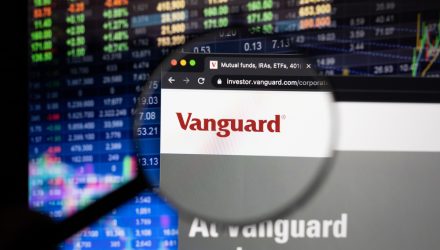Despite a volatile first quarter, fixed income provided investment portfolios with stability and, as its name implies, income. But a recent analysis from Vanguard argues that, while the Bloomberg U.S. Aggregate Bond Index finished up in Q1, the time for investors to be fully risk-on isn’t quite here yet.
“We added oversold issuers, particularly large banks, during the market stress, but the time for a full risk-on moment has not yet arrived,” Vanguard wrote. “We remain biased toward higher-quality segments that can weather a weakening economy. We’ve likely seen the peak in yields for this cycle — at some point, duration will become an investor’s best friend.”
The banking crisis triggered by the collapse of Silicon Valley Bank has affirmed Vanguard’s expectation of a recession to occur this year — even though it is confident that regulators have properly mitigated the risk of another global financial crisis.
See more: “Bond ETFs 101: A Refresher”
Fixed Income Sector Returns and Yields

Source: Vanguard, using data from Bloomberg indexes and J.P. Morgan EMBI Global Diversified Index, as of March 31, 2023.
Regardless of how this all plays out, the higher yields that fixed income now provides will help to cushion any further shocks while providing stability and returns. So, investors may want to consider adding some short-term, investment-grade bond funds to their portfolios. Vanguard offers a suite of fixed income ETFs of differing styles and durations, including the Vanguard Short-Term Bond ETF (BSV), the Vanguard Short-Term Corporate Bond ETF (VCSH), and the Vanguard Short-Term Treasury ETF (VGSH).
BSV invests in U.S. government, investment-grade corporate, and investment-grade international dollar-denominated bonds with a dollar-weighted average maturity of one to five years.
VCSH, meanwhile, invests in U.S. dollar-denominated, investment-grade, fixed-rate, taxable securities issued by industrial, utility, and financial companies, with maturities between one and five years.
VGSH invests primarily in investment-grade U.S. Treasury bonds and maintains a dollar-weighted average maturity of one to three years.
All three funds carry an expense ratio of just four basis points.
For more news, information, and analysis, visit the Fixed Income Channel.

